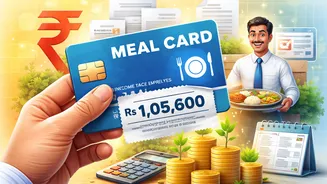Flights: Smart Savings
First, consider flights. Begin by clearing your browser's cookies and browsing in incognito mode; this can sometimes prevent price hikes based on your search
history. Be flexible with your dates. Flying on weekdays is often cheaper than weekends, and being willing to shift your travel by a day or two can unlock significant savings. Explore alternative airports. Often, smaller airports near your destination offer better deals. Set up price alerts using tools like Google Flights or Skyscanner. These services track prices and notify you when they change, allowing you to book at the most opportune moment. Lastly, always consider budget airlines. While these carriers often have extra fees, the base fare savings can be substantial, especially if you pack light and avoid extras.
Accommodation: Budget-Friendly Stays
Accommodation is another key area for cost savings. Think beyond traditional hotels. Consider options like hostels, which are great for solo travelers and those on a budget. Guesthouses and local rentals, such as those found on platforms like Airbnb, can provide more space and often better value, especially for longer stays or families. Explore the off-season. Traveling during the shoulder season (the months just before or after peak tourist season) usually translates to lower prices. Book in advance, but also watch for last-minute deals, especially if you're flexible. Some hotels lower prices to fill empty rooms. Finally, remember to check for freebies. Many hotels offer complimentary breakfast, Wi-Fi, and other amenities. Using these can save you money on food and other expenses.
Transportation: On-the-Ground Savings
Saving on transportation is essential for a budget trip. Utilize public transport as much as possible. Buses, trains, and subways are almost always cheaper than taxis or ride-sharing services. If possible, opt for walking or cycling. Many cities have great walking tours or rental programs. Consider purchasing a city pass. These often include free access to attractions and unlimited use of public transport, providing value for your money. When using taxis or ride-sharing, know the rates beforehand. Be aware of surge pricing and avoid peak travel times. For longer distances, consider overnight buses or trains, which can save you money on accommodation costs, as you are traveling while you sleep.
Food: Eating Cheaply
Food costs can quickly add up, so consider these tips to save. Embrace local cuisine, as this is often cheaper and more authentic than eating at tourist-oriented restaurants. Visit local markets and grocery stores to buy snacks and make your own meals, especially breakfast and lunch. Look for restaurants outside of the main tourist areas. They tend to be less expensive. Take advantage of free food. Many hotels and hostels provide complimentary breakfast. Some attractions and events may also offer free food. Be mindful of portion sizes and avoid ordering too much. It is often better to order appetizers or smaller meals to save money and avoid wasting food. Consider preparing your own meals when possible to save even more money.
Activities: Free Entertainment
Enjoying your trip doesn't always require spending a fortune on activities. Explore free walking tours offered in many cities. These tours provide a great introduction to the area and are often led by enthusiastic locals. Visit parks, museums, and art galleries, many of which offer free admission days or times. Look for free events happening during your trip. Festivals, concerts, and street performances are great options for entertainment without spending money. Take advantage of hiking trails and scenic routes. These options offer wonderful views and are free to experience. Research free activities. Many cities have websites or guidebooks that list free things to do.
Packing: Smart Preparation
Prepare before you leave to reduce hidden costs. Pack light to avoid baggage fees from airlines. Only take essential items and use space-saving techniques like rolling clothes instead of folding them. Pack your own snacks and drinks to avoid overpriced airport options or tourist traps. Consider bringing a reusable water bottle to refill, saving money and reducing plastic waste. Research what’s available at your destination. Sometimes it is cheaper to buy toiletries or other supplies upon arrival, rather than overpacking from home. Before you leave, make a list and check it twice, ensuring that you have everything you need to avoid any unnecessary purchases.
Communication: Stay Connected
Communicating without breaking the bank is crucial. Research local SIM cards or international roaming plans before your trip. These often provide better value than expensive international calling plans. Utilize free Wi-Fi, available at most hotels, cafes, and public areas. Download maps and information offline to save on data charges. Use messaging apps like WhatsApp or Telegram to make free calls and send texts. Consider downloading a translation app for those trips where language may be a barrier. Prioritize finding free Wi-Fi hotspots, and limit your usage of roaming data to keep costs down.
Currency Exchange: Wise Choices
Getting the best exchange rates can make a big difference to your budget. Avoid exchanging currency at the airport, as rates are typically unfavorable. Instead, exchange money at local banks or currency exchange offices, which usually offer better rates. Use ATMs at your destination, but be mindful of fees. Inform your bank about your travel plans to avoid issues with your cards. Consider using a travel credit card with no foreign transaction fees. These cards can save you money on currency exchange and also offer other benefits. When using ATMs, be aware of potential fees and withdrawal limits.
Insurance: Protecting Yourself
Travel insurance is a must-have. It can protect you from unexpected costs, such as medical emergencies or lost luggage. Compare different travel insurance policies to find the best coverage for your needs and budget. Read the fine print and understand what is covered and what is not. Consider purchasing travel insurance with cancellation coverage. This protects you if you need to cancel your trip due to unforeseen circumstances. Keep your insurance information and emergency contact details handy. Before you travel, review your existing insurance policies to understand what coverage you already have.
Shopping: Smart Purchases
Resist impulse purchases when traveling. Before buying anything, ask yourself if you truly need it. Explore local markets. You can often find unique items at lower prices than at chain stores. Learn to bargain, but do so respectfully. Be mindful of import duties and taxes, which can add to the cost of your purchases. Take advantage of tax-free shopping where available. Keep receipts for any expensive items in case of customs inspections or for returns. Do your research to understand the average prices and whether you are paying a fair price.
Hidden Costs: Unexpected fees
Be prepared for potential hidden costs to stay within budget. Always factor in airport fees, which can be charged for things like baggage, seat selection, or even using the restroom. Read the fine print on bookings to identify potential cancellation fees or service charges. Check for gratuity guidelines and factor tips into your budget. Be aware of transaction fees. These can come from using credit cards, ATMs, or currency exchange services. Consider the cost of visas or travel permits needed for your destination. By being aware of these costs and planning ahead, you can minimize the impact on your budget.

















